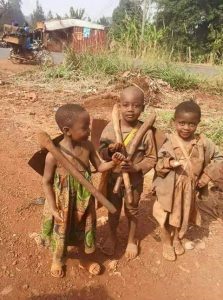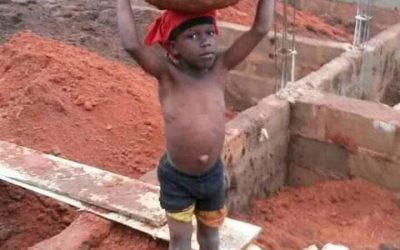Causes of Child Labor in Africa. Africa has often been described as a rising continent owing to the strong economic performance of some of her member states. But behind this veneer of economic progress lies stories of agony, dejection, and, alarmingly, widespread cases of child labor. Child labor, which mostly affects children from poor financial backgrounds, has been a complex issue that even political and executive establishments haven’t found a lasting solution. In Ethiopia, for example, up sixty-six percent often engage in child labor to supplement their families’ income. The 2002 ILO research further diverges that such children end up earning lower wages and miss out of a key process such as free education.
So, what causes child labor in Africa?

How the issue is fixed. Below are potential answers to these difficult but important topics on the plight of the African child. Causes of Child Labor in Africa Civil unrest While a majority of the African states have become more stable over the last decade, a countable number of states still grapple with the civil unrest that exposes children to evils such as sexual exploitation and child labor.
Some of the states such as the Democratic Republic of Congo, Southern Sudan, and Somalia register widespread cases of child labor owing to the prolonged civil wars in those states. Poverty For children from challenging financial backgrounds, child labor is a necessary evil that helps put food on the table or supplements the family’s income. It isn’t uncommon for children in tasks such as picking coffee and tea in the farms during the weekends or during school holidays. It’s disheartening to note, though, that these children only earn a meager percentage of what adults would request for. Inadequate laws guarding children against labor exploitation While nearly every African state have laws that safeguard children against exploitation, few of these state have the right teams to implement the laws.
Often, those expected to enforce the laws turn to be the first violators or accomplices in the acts. It’s even worse in countries where corruption is widespread. Drought and resettlement For nomadic families, child labor is engraved in their culture. Children are responsible for taking care of animals and may even forego education for the fields. Resettlement also means a change of their way of life and often opens the room to child labor.
Final word While Africa has registered progress in many fronts, child labor still haunts authorities, policymakers, and communities at large. While there are many causes that may fan child labor, the above are the most common agents.
Some of the states such as the Democratic Republic of Congo, Southern Sudan, and Somalia register widespread cases of child labor owing to the prolonged civil wars in those states. Poverty For children from challenging financial backgrounds, child labor is a necessary evil that helps put food on the table or supplements the family’s income. It isn’t uncommon for children in tasks such as picking coffee and tea in the farms during the weekends or during school holidays. It’s disheartening to note, though, that these children only earn a meager percentage of what adults would request for. Inadequate laws guarding children against labor exploitation While nearly every African state have laws that safeguard children against exploitation, few of these state have the right teams to implement the laws.
Often, those expected to enforce the laws turn to be the first violators or accomplices in the acts. It’s even worse in countries where corruption is widespread. Drought and resettlement For nomadic families, child labor is engraved in their culture. Children are responsible for taking care of animals and may even forego education for the fields. Resettlement also means a change of their way of life and often opens the room to child labor.
Final word While Africa has registered progress in many fronts, child labor still haunts authorities, policymakers, and communities at large. While there are many causes that may fan child labor, the above are the most common agents.

